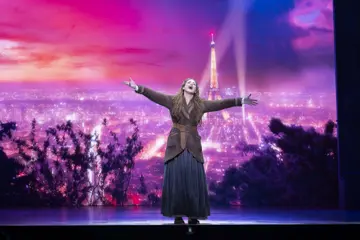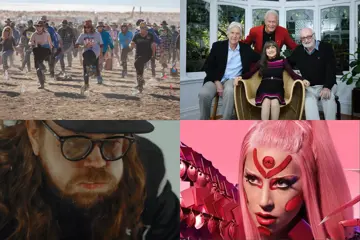"I'm really interested in what theatre writing can be with different collaborative relationships. Given that the playwright has such a low status in Australia anyway, I think we should be exploring other ways of creating theatre because it creates different sort of work."
Lachlan Philpott isn't just thinking about these other ways of making theatre, he's doing it. Recently returned from a trip to China where he has been collaborating on a new work with a Chinese director, Philpott is now preparing to premier the results of another experiment with writing: a play co-authored with and starring Luke Mullins.
"I don't think that everyone can be a celebrity. "I don't think we can have an infinite amount of celebrities."
Lake Disappointment started out as a commission for Bell Shakespeare's Mind's Eye program, slowly developing into the eerie and mysterious examination of self and celebrity it has become. "I don't think that everyone can be a celebrity," Philpott says seriously. "I don't think we can have an infinite amount of celebrities, and if people are only fascinated, or a proportion of people are only fascinated with what, really, is a kind of very superficial matter, well then what does that mean for our future as beings?"
While audiences at the 2015 National Play Festival in Adelaide gave a reading of Lake Disappointment a strong reception, Philpott stresses that this is not just theatre for theatre-types. "I'm hesitant to write material that is self-referential in relation to the industry because I know how it feels as an audience member to go and watch something that feels very in-house where you don't get the joke, and I think actors and the theatre industry can be very guilty of that, but I think this story can have a resonance for both people who work in the industry and those who don't.
Don't miss a beat with our FREE daily newsletter
"Without giving away the story, something happens to this particular man, which I think we all experience: you get left behind, or you get left out, and you don't get told why. I think every actor who's ever auditioned for something and not been given the role and not been contacted or not been told why; or every writer who hasn't had somebody respond to a work they've sent them, that kind of thing. It's not rejection, because rejection involves a conversation, it's what contemporary society has replaced rejection with, which is just saying nothing, and that awful void of silence where you don't know. In a world where everyone is buoyed by the need to have this endless confidence in themselves that silence undermines that confidence in such a profound way."
With the line between personality and humanity becoming increasingly difficult to distinguish, Philpott and Mullins were driven to look at how people may lose their personality in the obsessive pursuit of fame.
"What happens to the world when we all realise that we can't be famous and we realise that we're not all special and we realise that we're all really just little things that walk around that die without leaving any sort of legacy because it's impossible to leave a legacy in a world with such a huge population?"















